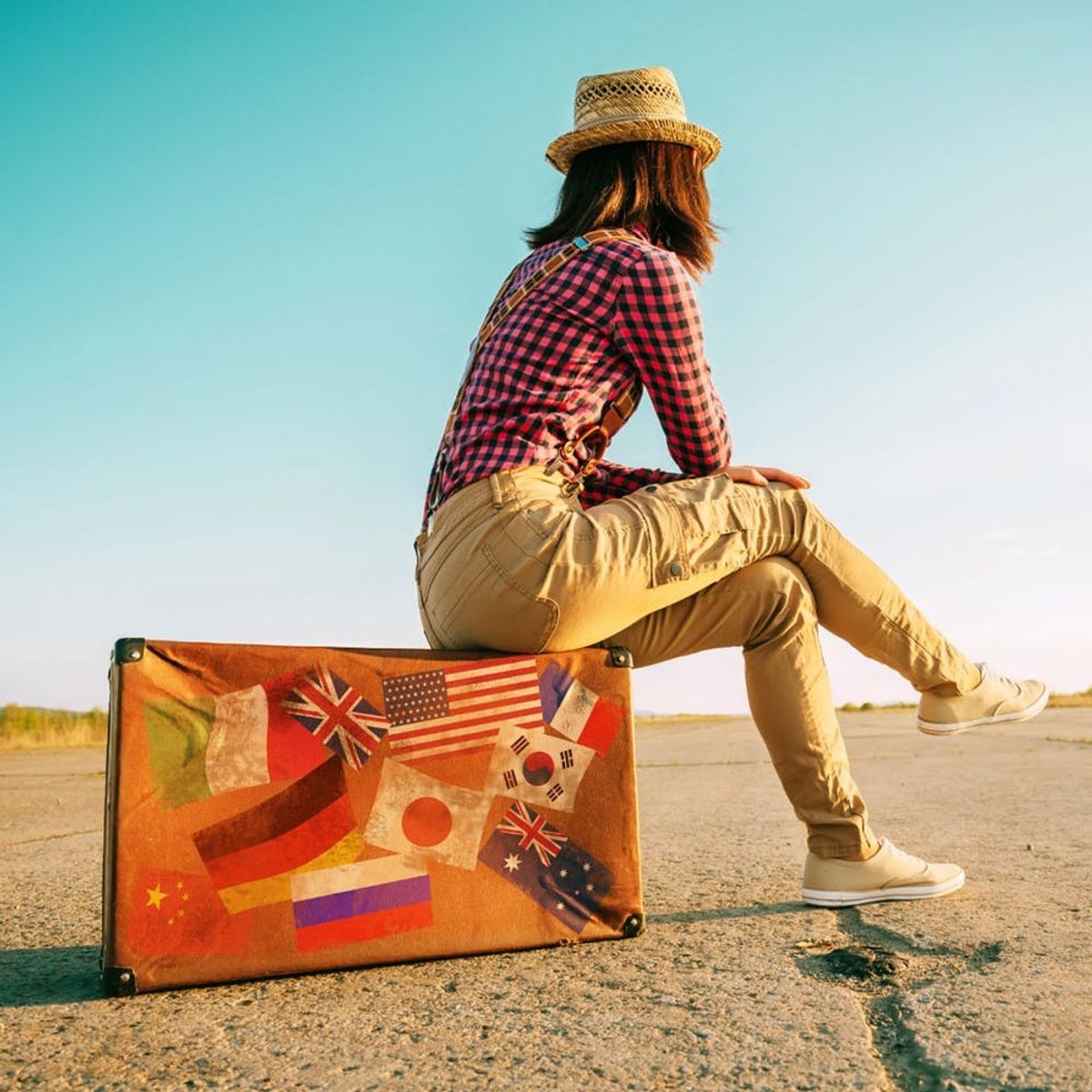Traveling in a long distance-relationship can have these surprising perks.
5 Things That Happen When You Travel Without Your Partner

Although traveling while single is hella fun, there are some big advantages to traveling solo and being in a committed relationship. Partners these days are really pushing the boundaries on what “normal” means, and if that includes a little bit of an LDR, then more power to you. In between downloading a long-distance relationship app or two and choosing the best country to travel solo, scroll on for relationship counselor Rebecca Nilson’s thoughts on what happens when you travel without your S.O.

1. You fall back in love with yourself. We won’t get into how frighteningly fast we sometimes turn “you and me” into “we,” and that’s really cute for selfie purposes, but we can easily start to lose our sense of self in that comfort. Rebecca reminds us, “it’s important people maintain their identity in a relationship. You come together as one, but for a healthy, long-term relationship, it’s important to have your own hobby. This could mean traveling and being apart.”

There’s something completely refreshing about being in a new city by yourself. Without having to compromise for anyone else, you get to just be you, and that can be a glorious thing. Take time to do all the things YOU want to do and think of it as an opportunity to spend quality time with yourself. That relationship is equally important.
2. You learn how to appreciate new experiences and communicate them. Sure, full moon parties on the beaches of Thailand sounded fun once, but a six-day bender with kids who just graduated from high school isn’t exactly the trip you had in mind at this phase of your life. Be realistic with your expectations and interests, because even though travel releases the explorer within us, this doesn’t have to mean clubbing through every city.
No matter how you’re seeing the world, being open with your partner about these experiences is the most important part. “Learning to communicate is a skill… we practice it, we make mistakes, we hopefully learn and then do it better next time. This is critical in long-distance relationships.”
3. Your relationship is tested. “As with any healthy relationship, I think three components must be there: trust, loyalty and commitment.” Being in a foreign place and away from your love can definitely be tough, but no one ever said relationships were easy. Rebecca’s words of wisdom are, “Good things take work, maintenance. Especially relationships. It takes two and both people must be willing to commit.”

The best way to test a car is to take it out on the open road, so let’s apply the same logic. If there are some loose screws, but you’re both willing to take a look under the hood — okay, no more car analogies — then it can actually bring to light some issues you might have buried. You and your boo can totally benefit from being tested every now and then.
4. You go beyond hookups. We all have some great stories of transient affairs and some let’s-not-even-go-there ones, but we can all agree that nothing compares to that feeling of a true companionship. Rebecca tells us, “Each day, choose that person. Let them know you still choose them, each and every day. If you find yourself in a committed relationship that brings your partner far away for some time, it takes effort, but it is often worth it.”
When you’ve reached this level of comfort, you can actually use that to focus on what else is around you. We spend a lot of time romanticizing romance, but sometimes it can be exhausting. Taking a break from it all and giving yourself your undivided attention might change your perspective. Whether it’s viewing the Arc de Triomphe or the Great Wall of China, your experience is marked by just that: your experience.
5. You learn how to keep the romance alive. Rebecca tells us, “In this day and age, it’s easy to stay connected. To send a ‘thinking of you’ message, we have FaceTime and Skype. You can still have dates if one person is traveling overseas for a week, a month or even a year. Yes, the year is more difficult. But it is possible. I have worked with many people in relationships who had to do that.”



















